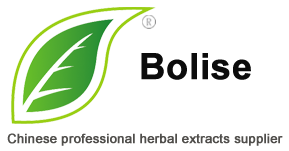椰子油
Coconut oil is extracted from the kernel or meat of matured coconut harvested from the coconut palm (Cocos nucifera).椰子油是从可可椰子(Cocos nucifera)收获的成熟椰子的仁或肉中提取的。 Throughout the tropical world it has provided the primary source of fat in the diets of millions of people for generations.在整个热带世界中,它已成为世代相传的数百万人饮食中的主要脂肪来源。
Coconut oil is uniquely different from most other dietary oils and for this reason, has found use in a multitude of applications in food, medicine, and industry.椰子油与大多数其他食用油有独特的区别,因此,椰子油已在食品,医药和工业中得到广泛应用。 What makes coconut oil different from most other dietary oils is the basic building blocks or fatty acids making up the oil.使椰子油与其他大多数食用油不同的是构成该油的基本结构单元或脂肪酸。 Coconut oil is composed predominately of a special group of fat molecules known as medium chain fatty acids (MCFA).椰子油主要由一组特殊的脂肪分子组成,称为中链脂肪酸(MCFA)。 The majority of fats in the human diet are composed almost entirely of long chain fatty acids (LCFA).人类饮食中的大多数脂肪几乎完全由长链脂肪酸(LCFA)组成。
MCFA和LCFA之间的主要区别是分子的大小,或更准确地说,是构成脂肪酸主链的碳链的长度。 MCFA的链长为6至12个碳。 LCFA包含14个或更多的碳。
The length of the carbon chain influences many of the oil's physical and chemical properties.碳链的长度会影响石油的许多物理和化学特性。 When consumed, the body processes and metabolizes each fatty acid differently depending on the size of the carbon chain.食用时,人体根据碳链的大小不同地处理和代谢每种脂肪酸。 Therefore, the physiological effects of the MCFA in coconut are significantly different from those of the LCFA that are more commonly found in the diet.因此,MCFA在椰子中的生理作用与饮食中更常见的LCFA的生理作用显着不同。
MCFA和LCFA也可以分为饱和,单不饱和或多不饱和脂肪酸。 Coconut oil contains 92% saturated fatty acids.椰子油含有XNUMX%的饱和脂肪酸。 All of the MCFA in coconut oil are saturated.椰子油中的所有MCFA都饱和。 They, however, are very much different chemically from the long chain saturated fatty acids found in animal fat and other vegetable oils.但是,它们在化学上与动物脂肪和其他植物油中的长链饱和脂肪酸有很大不同。

 亚洲生物医药研究院
亚洲生物医药研究院 博利斯有限公司
博利斯有限公司

